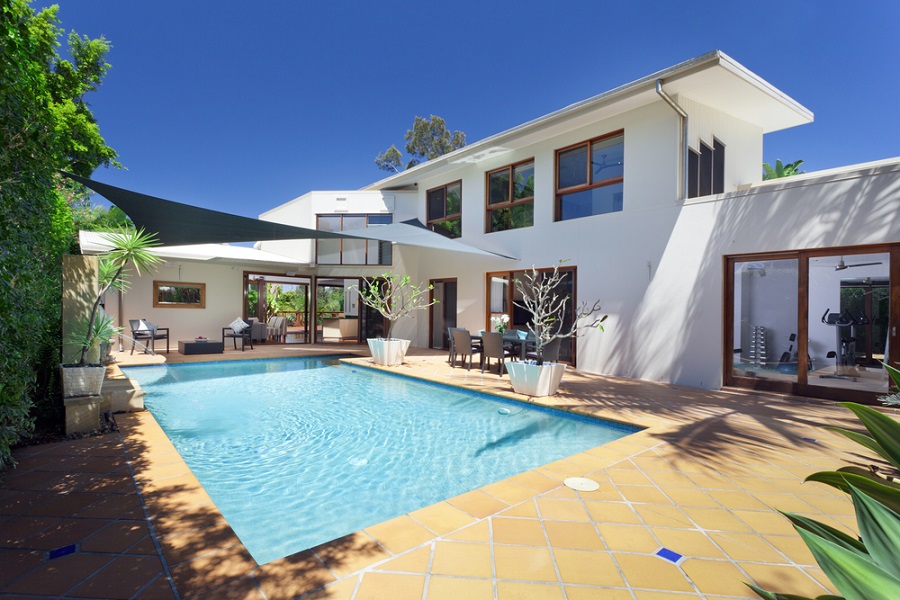When you first open up your swimming pool, there are certain things you should do to ensure its safety and longevity.
Here are some tips on inspecting and preparing a pool for its very first use:
1. Inspect and Rinse The Pool Filter
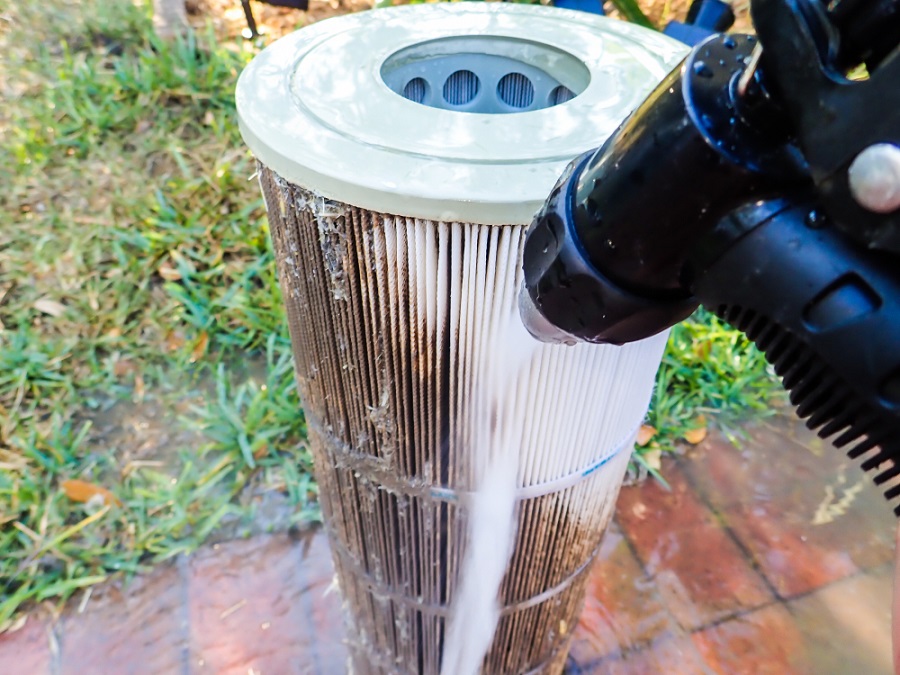
Before you do anything or add chemicals to your pool, clean the filter. Even if it’s new, inspect the filter and hose it off. This will remove any debris that may clog the filter and prevent it from working properly.
2. Add Chemicals To Your Water
After cleaning out the filter, add chlorine and bromine to the water. Chlorine kills bacteria and algae, while bromine helps kill germs and viruses.
3. Test Water pH
To test the pH level of your pool, dip a piece of paper into the water and hold it under sunlight for about 30 minutes. If the paper turns yellowish-green, then the pH level is too low.
If the paper turns brown, then the pH level of the water is too high.
4. Check Safety Equipment
Make sure that all safety equipment is in place. For example, ensure that the pump is running, the skimmer is working, and the drain valve is closed.
5. Maintain Proper Temperature
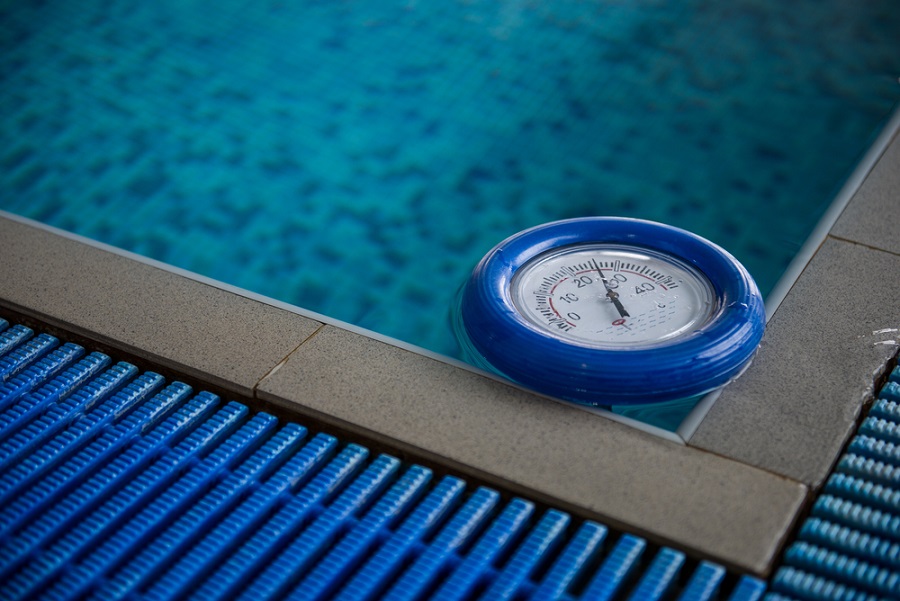
Maintaining proper temperature is very important to keeping your pool safe and healthy.
If the temperature of your pool drops below 80 degrees Fahrenheit, you may need to heat it for comfort. If you have a pool heater – is it functioning?
If the temperature rises above 90 degrees Fahrenheit, you must cool down the pool. If you have a pool chiller, is it working?
6. Fill To The Proper Depth
Keeping the depth of your pool correct is essential to maintaining its health.
If your water level is too low, it will not flow into and through your water filtration system so your pool water may quickly become stagnant.
If your water level is too high (near pool deck / above water skimmer intake level), then this could be a sign your filtration system is not flowing correctly or valves are stuck closed.
7. Check Your Pool Lights
Lighting levels are another thing that you need to maintain appropriately.
After it gets dark, turn on your pool light and make sure there are no obvious large shadows or leaks in the lighting system.
8. Check Your Schedules
To avoid burning excess utility bills, make sure your pool pump, heater, chiller, automatic pool cleaner, and pool lights are on the right schedule.
You should turn off the pool lights during the winter months between 10 p.m. and 6 a.m. In the summer months, you should turn on the pool lights at 5 a.m. and turn them off at 9 p.m.
9. Clean Pool Surfaces
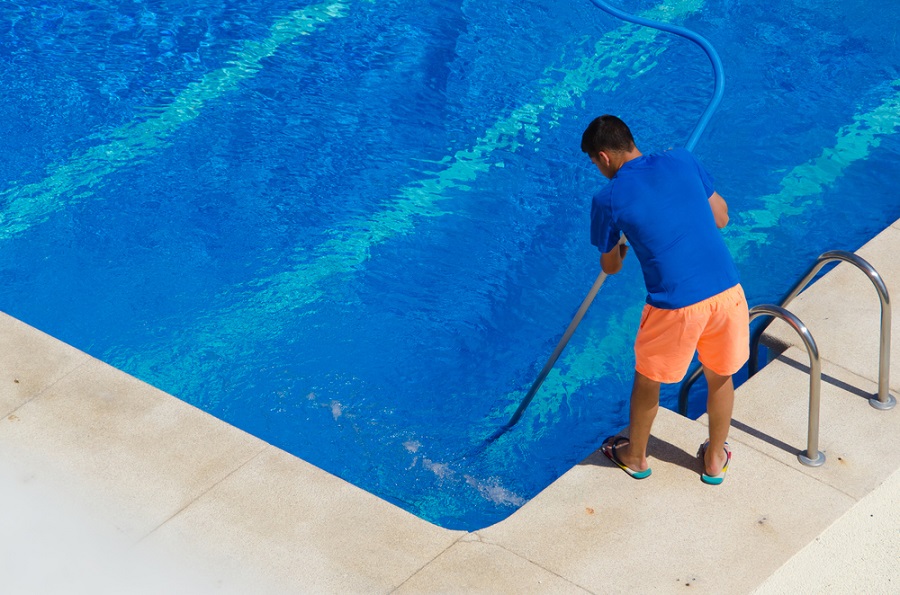
Keep your pool clean so that it stays healthy and safe.
Use a brush and pool net to scrub the inside of the pool and remove loose debris every week.
Also, use a vacuum cleaner to suck up leaves and debris from around the pool.
10. Use Chemicals To Shock Your Pool
Chemical treatment is another option for treating your pool. There are many different types of chemical treatments available.
Some of these include chlorine, bromine, copper sulfate, and potassium permanganate.
11. Ensure Adequate Sunlight
Sunlight is an effective way to disinfect your pool. Check trees and ground cover at different points in the day to ensure all parts of your pool are getting at least a couple of hours of direct sunlight each day. If not, then consider trimming vegetation to allow this.
12. Check Your UV Lights
UV light is another way to treat your pool. This type of light kills bacteria and algae.
13. Know Your Filters
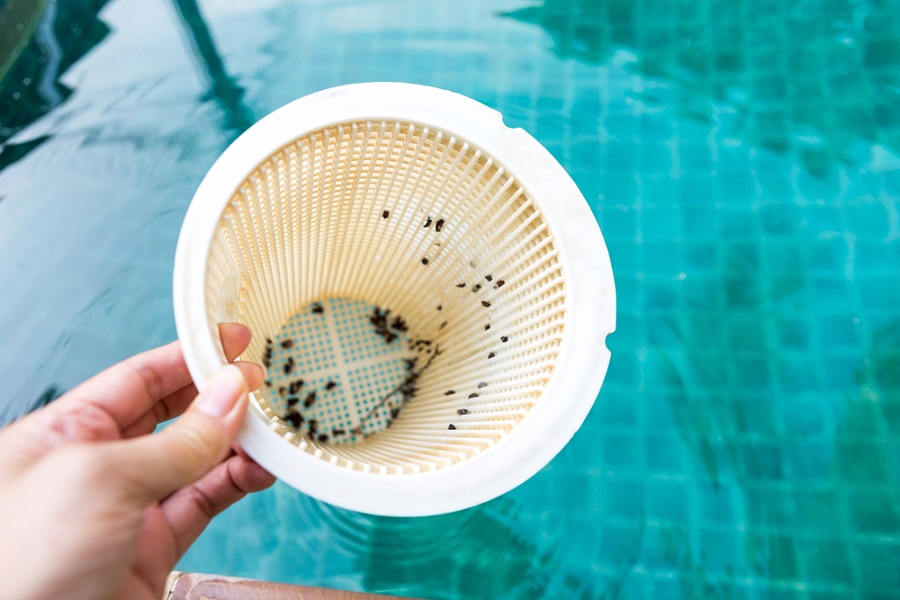
Filters remove dirt and debris from your pool. They also kill bacteria. There are several kinds used by every pool. Know where each is, know how frequently you should check them, and practice emptying them at least once.
14. Use Your Water Testing Kit
Water testing kits are used to test the pH level and chemical concentrations of your pool water. If the pH level is not within 7-8, you need to adjust it.
15. Check Your Diatomaceous Earth (DE) Filter
Diatomaceous earth is a natural product that helps prevent algae growth. If your filtration system uses it, make sure it is filled and operational.
16. Use Algae Blockers
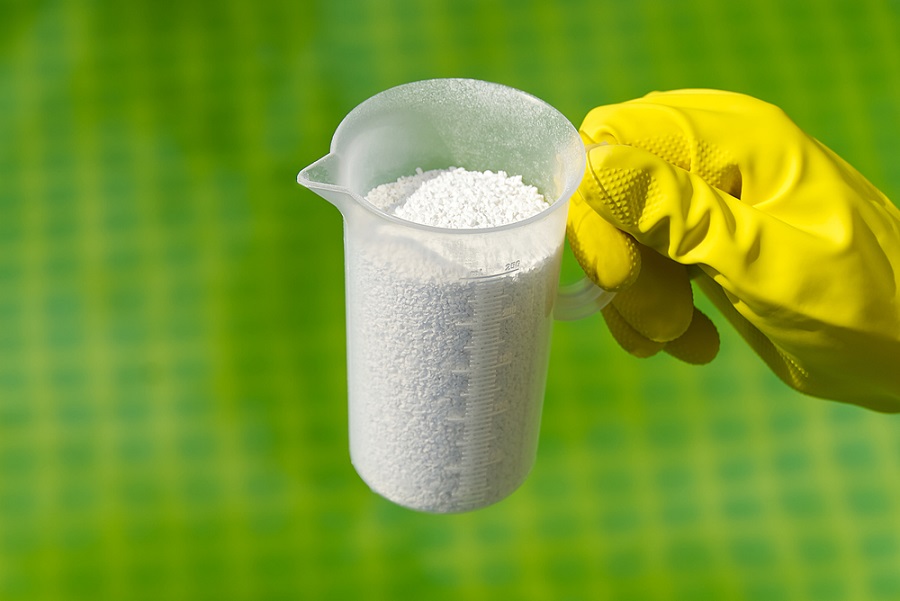
Algae blockers are products that contain chemicals that prevent algae growth.
17. Use Bacteria Blockers
Bacteria blockers are products that contain substances that prevent the growth of harmful bacteria.
18. Test Your Main Pool Filter
Filtration systems are used to filter out impurities from your pool water. You should run your pool filter for at least one day before relying on it.
19. Inspect Your Chlorinator
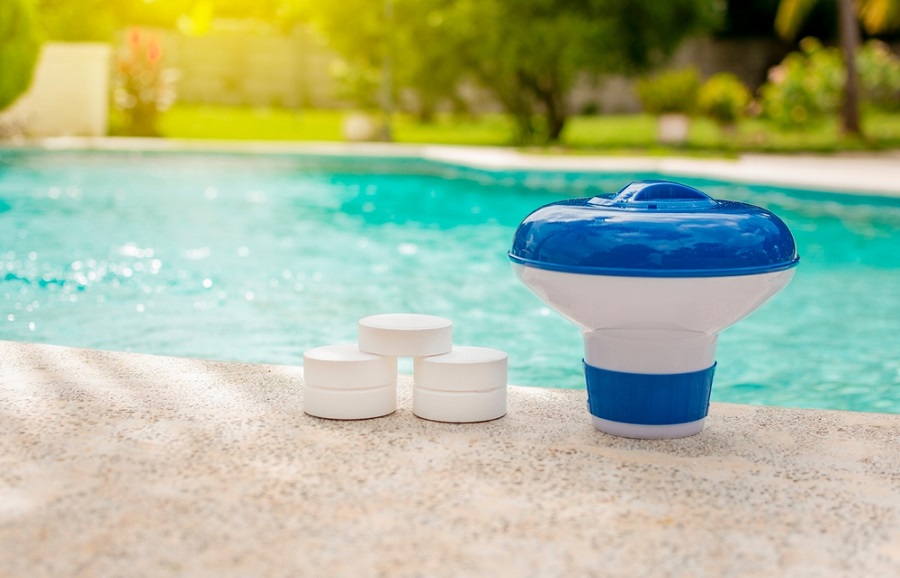
Chlorinators are devices that convert salt into chlorine to sanitize pool water. They are an essential component of every salt water pool and should be inspected regularly.
Check your salt ppm (parts per million) on the digital readout to ensure it is between 2,500 and 3,500 before opening your pool.
20. Check Your Pool Skimmers
Skimmers are devices that remove excess debris from the surface of your pool. Make sure you know how many you have and how to access and empty the baskets.
21. Check Your Pool Pumps
Pool pumps are machines that pull water through filters and back into the pool. Most pools have one, but some add dedicated pumps for different water features, heaters, and automatic pool cleaners.
22. Check Your Sand Filters
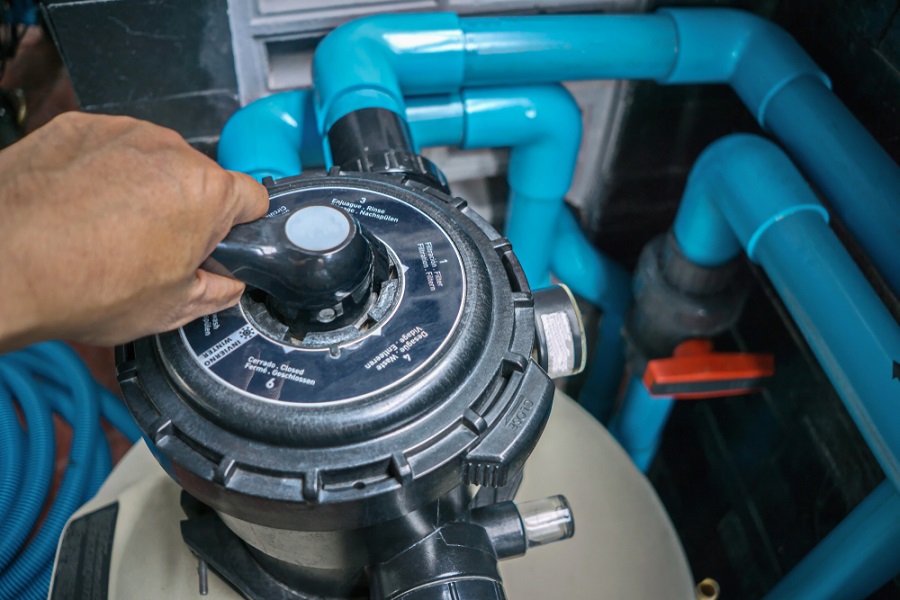
Sand filters filter sand and other small particles from your pool water. These filters are easy to install and maintain.
23. Inspect Your Heat Exchanger/Pool Heater/Pool Chiller
Heat exchangers are devices that transfer heat into and out of your pool’s water. Gas and electric heaters add heat only. Pool chillers remove heat only. Make sure they are operational before opening your pool on a chilly or warm day.
24. Inspect Pool Covers
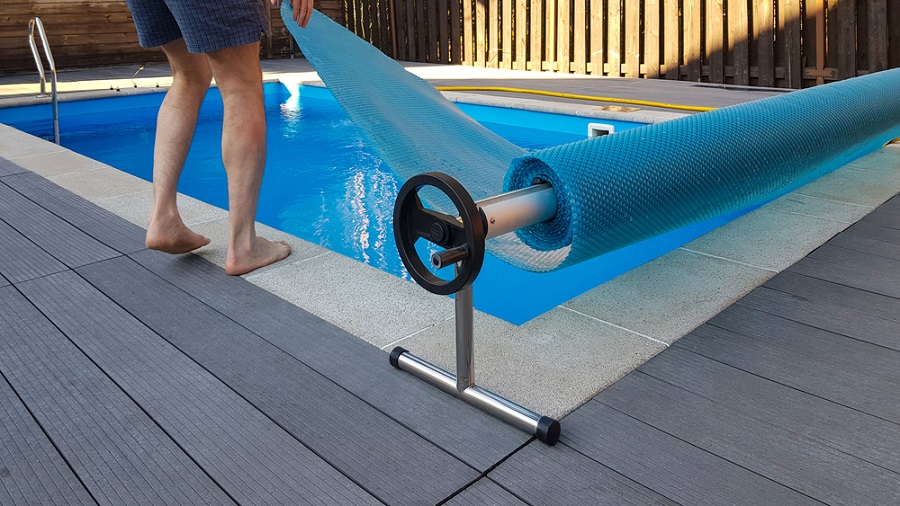
Pool coverings are covers that protect your pool from rain or snow.
FAQs
Q: What do I have to do when my pool starts smelling?
A: Your pool may start stinking because there are too many germs in the water.
You should get rid of all the dead animals and plants in your pool before cleaning it.
You should also clean your pool regularly not to increase the smell.
Q: How much time will it take to clean my pool?
A: Cleaning your pool takes about 1 hour per week on average.
Q: Can I use bleach to clean my pool? Do I need special equipment?
A: Yes, you can use bleach to clean your pool. However, you must be careful while using bleach.
It is hazardous if you accidentally spill bleach on your skin.
If you want to use bleach to clean your pool, you should wear protective clothing such as gloves and goggles.
Q: Will I damage my pool if I use too much soap?
A: Using too much soap will cause corrosion in your pool.
Corrosion damages the metal parts of your pool.
Q: Does it matter how often I clean my pool?
A: You should clean your pool at least once every two weeks.
This way, you can keep away any unwanted organisms from growing in your pool.
Q. Is it safe to swim after using chlorine tablets?
A: No, it is not safe to swim after using chlorinated water.
Using chlorine tablets makes your body sensitive to chlorine.
The chlorine could irritate your skin and eyes.
Q: Why is it important to wash my pool with hot water?
A: Hot water cleans your pool better than cold water.
Using hot water prevents algae from forming.
Q: How long can I store a chlorine tablet?
A: You can store chlorine tablets for up to three months without worrying about them getting mildewed.
However, they lose their potency over time.
Q: What happens if I forget to add chlorine tablets to my pool?
A: If you forget to add chlorine tablets, you should wait until the next day.
Adding chlorine tablets to the pool will kill most bacteria and prevent algae from spreading.
Q: How can I remove algae from my pool?
A. Algae is usually removed by vacuuming the pool.
Vacuum cleaners are effective in removing algae.
Q: How can I reduce the amount of chlorine in my pool?
A. Chlorine reduces the amount of oxygen in your pool.
Therefore, you can reduce the amount of chlorine by adding air stones to your pool.
Air stones help to release more oxygen into the water.

